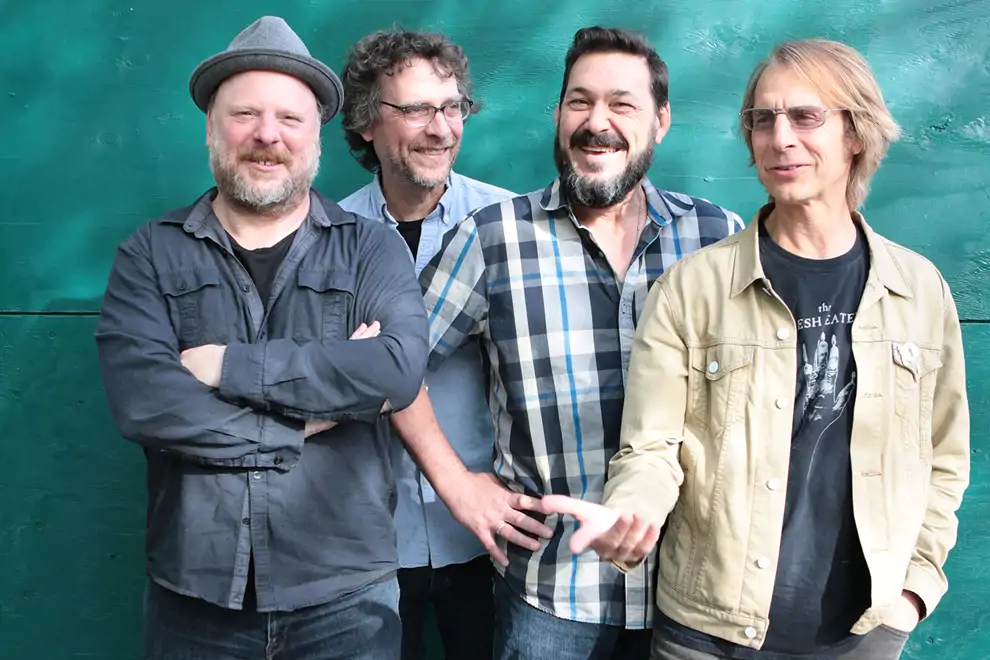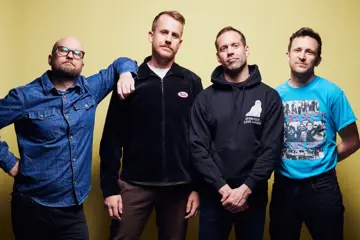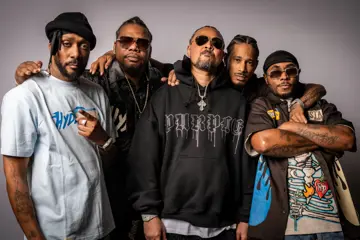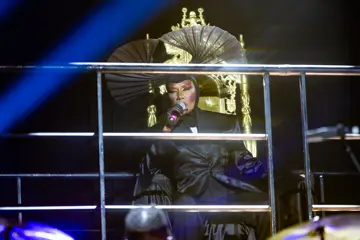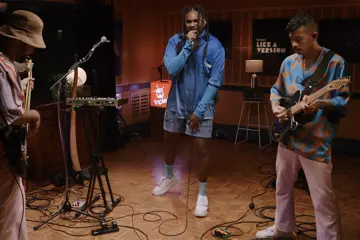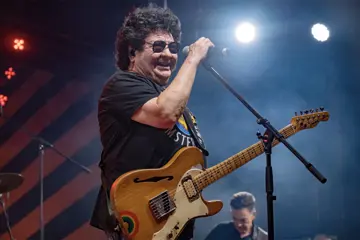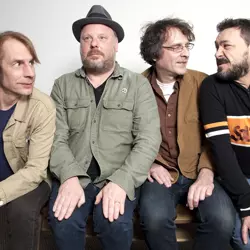 Mudhoney
MudhoneySeattle rock veterans Mudhoney first made the long trek to Australia back in 1990, but even as they first set foot on our shores, the members arrived acutely aware of our fertile underground music scene.
Now a pioneering and influential band in their own right - having been at the vanguard of the Pacific Northwest rock boom that transformed the musical landscape in the early 90s - Mudhoney had forbears that they looked up to as well and were influenced by in their formative stages, many of whom happened to emanate from Down Under.
"Australia kinda looms large in our history and backstory, especially the 80s underground stuff that we were really into,” frontman Mark Arm explains. “After a while, the stream of import records kind of shut off, but for a while there, it seemed like we were finding really, really great Australian records all the time.
‘We’re talking bands like The Scientists, Lubricated Goat, Feedtime, and then there were bands like Died Pretty, Harem Scarem, The Celibate Rifles… so many. Obviously, in terms of Aussie stuff, it all goes back to The Saints and Radio Birdman, and then The Birthday Party, but then we were like, ‘Holy shit, there’s all this other great stuff down there too!’
Don't miss a beat with our FREE daily newsletter
“There was a great network of fanzines back then that we were tapped into, but then the thing was you’d read about something, but then you mightn’t actually see it for ages - like I don’t think we found [The Scientists’ album] Blood Red River until ’85 or something and I think that came out in ’82!
“But those first two tours down there, in particular, were insane. We did two separate Australian tours in 1990, one in February and one in December. On any other tour, you’re just going from one place to the next to the next, but especially in Sydney and Melbourne, at the time, we were able to hang out for a week and just play shows and meet with people and hang out, and on our days off just have a blast. It was great."
This time around, they arrive toting their eleventh album, Plastic Eternity, a typically raucous affair but one with a different genesis to most Mudhoney records. For a conflux of reasons (including the old COVID chestnut), they hit the studio without the usual batch of finished, well-drilled songs in their pockets.
“We had most of the riffs, but a lot of the arrangements and song structures came together in the studio,” Arm says.
“About four or five of the songs were complete before we went in, but they weren’t super well-rehearsed. It was like us trying to remember everything that we’d put down before everything shut down and went to hell, and we quickly just started writing new shit.
“So we didn’t have a whole time of time to review. Usually, when we go into record, we’re pretty well-rehearsed, and things happen pretty quickly and efficiently, but I think the fact that things were really loose this time was kind of cool.
“I mean, some stuff had been around for a while; that song ’Almost Everything’, we’d had that riff probably since around the time that we were working on [2013 album] Vanishing Point - so it’s probably close to 12 years old - and we always knew it was a cool thing, but we didn’t know quite what to do with it.
“It wasn’t until we started dinking around with it while we were in lockdown that I figured out a way to approach it with vocals and also come up with a kind of opposing guitar part, so it just wasn’t following what everyone else was doing. It’s not incredibly complex or anything, but just enough to make a difference, I think.”
Lyrically there seems to be a loose environmental theme running through some of the tracks on Plastic Eternity - even the title could be construed as a nod in that direction - but Arm is quick to assure that any such similarities are purely coincidental.
“In my brain, I was thinking there were psychedelic themes throughout the record, but when I look back on it, those psychedelic themes are only in about three of the songs,” he laughs. “We’re not writers of concept records or rock operas, but it makes sense if you’re producing a bunch of stuff in the same condensed period of time, there would be thematic similarities and probably unintentional themes and ideas.
“Obviously, there are lyrics touching on consumerism and plastic garbage and a little bit of environmental shit. Just all the stuff I’ve been dwelling on lately.
“Everyone’s different, but when I’m listening to a record, I’m not necessarily listening to the lyrics. I’m not listening to a song to hear a good story; I’m listening to the sound of everything and how it comes together and how that makes you feel.
“It doesn’t hit me until later that, ‘Fuck, those lyrics are really great!’ or ‘Those lyrics are stupid! I’ve been singing this refrain or humming along and then realise what the refrain is and think, ‘What the fuck is that?’ Basically, I just try to come up with words that aren’t too embarrassing.
“Writing lyrics is the hardest part of songwriting for me. Coming up with music that pleases us really comes really easily and naturally to us - we know what we like individually, and we know what all of us like, and where everything kind of blends together. If anyone comes up with a riff or a piece of music, it’s going to go through the Mudhoney blender that is the four of us.
“In the past, I’ve intentionally tried to rip off a riff from someone else, but in the end, it never sounds like them - it just sounds like Mudhoney.
“I love the creative aspect of the band - we wouldn’t do it otherwise. It’s not like there’s a big pot of gold at the end of the rainbow! I love playing shows as well, but I really think that the writing and recording process is awesome - it doesn’t have the instant gratification of playing a cool show, but it’s amazing when you see a half-baked idea turn into something that’s fully-formed. And that only happens with the four of us in a room; it’s very rare that someone just brings in a finished song front to back with lyrics and everything.”
With Mudhoney having now been an entity for an incredible 35 years - and Arm having been a veteran of other bands before they even formed - he’s now completely at peace with his status as a rock’n’roll lifer.
“At this point, I’m not surprised that we’re still around,” he smiles. “We’ve all been in bands before, and I think the average lifespan of those bands had been about three years or something - I think Dan [Peters]’ band Bundle Of Hiss was going for six maybe - but I don’t think we had expectations to become a commercially lucrative thing that we would dedicate our lives to. And we’re still not a commercially lucrative thing, but we’ve dedicated our lives to it anyway!”

